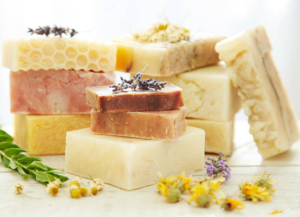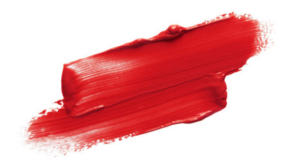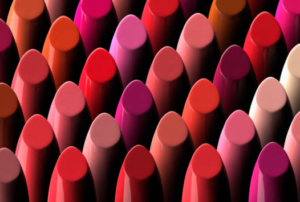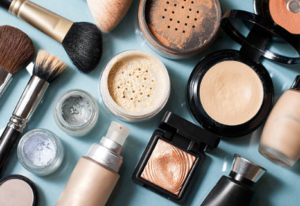Vegan Conundrums

The world of vegan beauty is booming. Yet, navigating this space can be riddled with unexpected dilemmas. Two such ingredients, beeswax and carmine, often leave even the most informed consumer scratching their heads. Are they vegan? Can they be ethically sourced? Let’s delve into the controversies surrounding these ingredients and explore the ethical alternatives offered by the ever-evolving vegan beauty industry.
The Buzz on Beeswax
Beeswax, a natural wax secreted by honeybees, enjoys widespread use in cosmetics – from balms and lipsticks to lotions and mascaras. Its benefits are undeniable: it provides a smooth texture, enhances water resistance, and offers natural thickening properties. However, the ethical implications of using beeswax in vegan beauty raise a few questions:
- Animal Exploitation: Veganism promotes a cruelty-free lifestyle. Extracting beeswax often involves removing honeycombs, potentially disrupting bee colonies and impacting honey production.
- Fair Trade Practices: While some brands claim ethical sourcing of beeswax, ensuring fair treatment of bees across the supply chain can be challenging.
The Ethical Alternatives to Beeswax
Thankfully, the vegan beauty world offers a plethora of plant-based alternatives that replicate the benefits of beeswax:
- Candelilla Wax: Derived from the Euphorbia cerifera shrub, this wax offers a similar texture and consistency to beeswax, making it a popular choice for lipsticks and balms.
- Candelilla Oil: Extracted from the same plant, this oil provides a lightweight, moisturizing alternative to beeswax while offering thickening properties.
- Rice Bran Wax: This sustainable option, derived from a byproduct of rice processing, offers a smooth, film-forming texture ideal for lotions and creams.
- Carnauba Wax: Sourced from the leaves of the Copernicia prunifera palm tree, this hard wax provides excellent shine and water resistance, making it a great choice for lipsticks and mascaras.
The Carmine Conundrum
Carmine, a vibrant red pigment, has been used for centuries to color cosmetics like lipsticks, blushes, and eyeshadows. However, its source raises ethical concerns for vegans:
- Crushed Insects: Carmine is derived from cochineal bugs, which are dried and crushed to create the red pigment. This practice raises questions about animal cruelty.
- Hidden Ingredient: Carmine often masquerades under labels like “natural red 4” or “cochineal extract,” making it difficult for consumers to identify its presence in products.
The Ethical Alternatives to Carmine
The vegan beauty industry offers several vibrant solutions to replace carmine:
- Mineral Pigments: Natural minerals like iron oxides can be used to create a wide range of reds, pinks, and browns, providing excellent color payoff and a cruelty-free alternative.
- Fruit and Vegetable Powders: Beetroot, carrot, and raspberry powders offer natural, buildable color options for lipsticks and blushes.
- Synthetic Pigments: Vegan-friendly synthetic pigments can replicate a wide range of colors and offer long-lasting wear, ensuring vibrant shades without ethical concerns.

Beyond the Ingredients
While understanding the ethical implications of individual ingredients like beeswax and carmine is crucial, vegan beauty encompasses a broader philosophy. Here’s a deeper dive into additional considerations for a truly holistic approach to vegan beauty:
1. Cruelty-Free Certification:
Look beyond ingredient labels and seek products certified by organizations like Leaping Bunny or PETA. These certifications guarantee that the product, and all its ingredients, haven’t been tested on animals at any stage of development or production. Here’s a breakdown of two key certifications:
- Leaping Bunny: This internationally recognized symbol ensures no animal testing is conducted by the brand, its suppliers, or any third parties involved in the product’s development.
- PETA Cruelty-Free: This certification signifies that no animal testing has been conducted on the final product or its ingredients by the brand or any party involved in its production.
2. Sustainable Practices:
Vegan beauty goes beyond just animal welfare; it embraces environmental responsibility. Here are some key aspects of sustainability to consider:
- Sustainable Sourcing: Look for brands committed to sourcing ingredients ethically and sustainably. This can include using plant-based ingredients grown with responsible agricultural practices or utilizing recycled materials for packaging.
- Eco-Friendly Packaging: Many vegan beauty brands are ditching excessive packaging and opting for recyclable, biodegradable, or compostable alternatives. Support brands that prioritize minimizing their environmental footprint.
- Water Conservation: The beauty industry can be a major water consumer. Seek brands committed to water-saving practices throughout their production processes.
3. Transparency and Communication:
Transparency is key to building trust and ensuring informed consumer choices. Here’s how brands can promote transparency:
- Clearly Labeled Ingredients: Ingredient lists should be easy to read and understand, avoiding complicated names or hidden terminology.
- Sourcing Information: Look for brands that provide details about their ingredient sourcing practices and ethical commitments on their websites or packaging.
- Communication and Accessibility: Engage with brands that actively respond to consumer inquiries and provide accessible information about their products and practices.
4. Ethical Labor Practices:
Vegan beauty seeks to extend its ethical principles beyond animals and the environment. Here are some aspects of ethical labor to consider:
- Fair Trade Practices: Support brands that ensure fair wages and safe working conditions for their employees and those involved in ingredient sourcing.
- Diversity and Inclusion: Choose brands that promote diversity and inclusion within their workforces and marketing strategies.
- Community Involvement: Look for brands that actively give back to the communities they operate in, supporting local businesses and social sustainability initiatives.

The Evolving Landscape of Vegan Beauty
The vegan beauty industry is a dynamic force constantly pushing boundaries and seeking innovative solutions for ethical and sustainable cosmetics. Here’s a closer look at some of the most exciting trends shaping the future of vegan beauty:
1. Biotechnology: Harnessing the Power of Nature
Biotechnology offers fascinating possibilities for creating vegan alternatives with superior performance. Here are some exciting advancements:
- Vegan Collagen: Collagen, a protein crucial for skin elasticity, traditionally came from animal sources. Now, biotech companies are developing vegan versions by utilizing yeast or bacteria fermentation.
- Spider Silk Protein: Known for its incredible strength and biocompatibility, spider silk offers potential for revolutionary cosmetics. Biotech startups are exploring ways to produce vegan spider silk protein for use in long-lasting makeup or high-performance skincare products.
- Cultured Meat for Beauty Products: While still in its early stages, the concept of using cultured meat principles to generate animal-derived ingredients (like keratin) for cosmetics in a cruelty-free way is being explored.
2. Upcycled Ingredients: Transforming Waste into Beauty
Sustainability is a core tenet of vegan beauty. Here’s how some brands are getting creative by repurposing waste:
- Fruit Pits and Seeds: Instead of discarding these byproducts, some brands are extracting oils or powders rich in antioxidants and natural pigments from fruit pits (like avocado or mango) and seeds (like chia or hemp) for use in skincare and cosmetics.
- Coffee Grounds: Used coffee grounds can be repurposed to create exfoliating scrubs or masks, offering a gentle yet effective way to buff and brighten the skin.
- Rice Bran: The outer layer of rice grains, often discarded, can be transformed into a lightweight oil with moisturizing properties, ideal for formulating nourishing skincare products.
3. Lab-Grown Ingredients: A Game Changer on the Horizon
Lab-grown ingredients hold immense promise for a truly cruelty-free future. Here are some pioneering developments:
- Lab-Grown Silk: This innovative approach utilizes silk fibroin proteins produced by silkworm cells in a controlled lab environment, offering a sustainable and cruelty-free alternative to traditional silk production used in some luxury beauty products.
- Human Growth Factors (HGFs): These naturally occurring proteins play a vital role in skin cell regeneration. Advancements in lab-grown HGFs have the potential to revolutionize anti-aging skincare products.
- Animal-Free Down: For vegan makeup brushes and products that traditionally utilize down feathers, lab-grown down alternatives are being explored, offering the same luxurious feel without harming animals.
Understanding the complexities surrounding ingredients like beeswax and carmine empowers you to make informed choices aligned with your vegan values. The ever-expanding world of vegan beauty offers a plethora of ethical alternatives, ensuring you can achieve stunning results without compromising your principles. So, explore the possibilities, embrace the innovations, and let your inner beauty shine through, naturally and ethically.

Bonus: Your Vegan Beauty Toolkit
Here are some resources to help you navigate the world of vegan beauty with confidence:
- Apps: Download apps like “Bunny Free” or “Cruelty-Free” to scan product barcodes and instantly check their vegan and cruelty-free status.
- Websites: Organizations like PETA and Leaping Bunny maintain comprehensive databases of certified vegan and cruelty-free brands.
- Influencers and Bloggers: Follow vegan beauty influencers and bloggers who share their knowledge, product reviews, and ethical shopping tips.
- Independent Beauty Stores: Many independent beauty stores specialize in vegan and cruelty-free products, offering a personalized shopping experience with knowledgeable staff.
Remember:
- Not all natural ingredients are inherently vegan. Always double-check the ingredients list or research the brand’s practices.
- Vegan beauty isn’t just about avoiding animal products; it’s about a holistic approach that prioritizes sustainability and ethical sourcing.
- Ask questions! Don’t hesitate to reach out to brands directly to inquire about their ingredient sourcing and ethical practices.
The world of vegan beauty is no longer a niche market; it’s a thriving force driving innovation and ethical practices within the beauty industry. By understanding the controversies surrounding ingredients like beeswax and carmine, you can embrace cruelty-free alternatives and create a stunning makeup look that aligns with your values. Explore the exciting possibilities, support sustainable brands, and let your inner and outer beauty shine through with each ethical choice you make.

